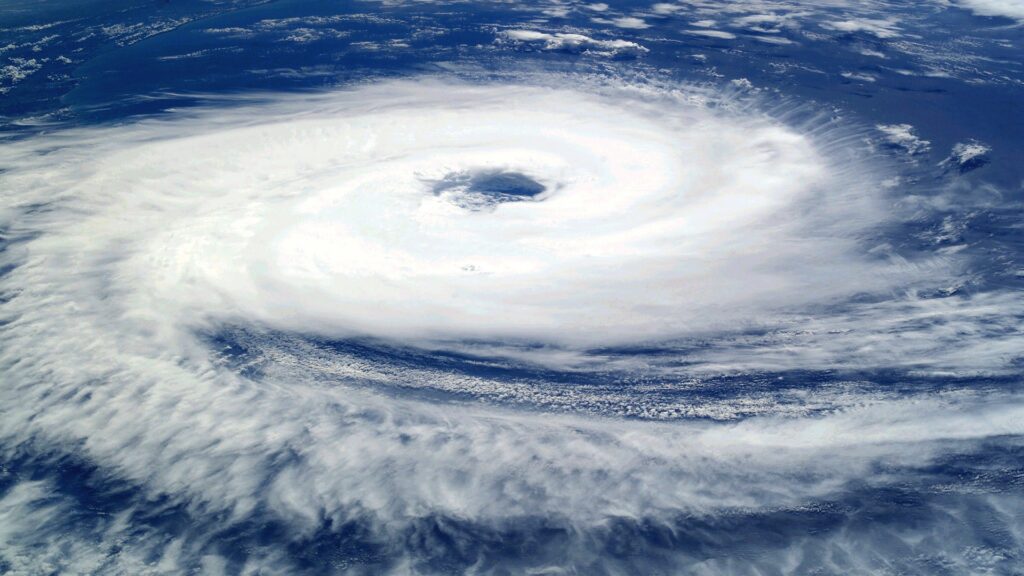Hurricanes have caused billions of dollars of damage to the Gulf and Atlantic coasts over the years – impacting housing, causing week-long power outages, and damaging roads and highways. Additionally, hurricanes pose a threat to our energy infrastructure, causing fluctuations in oil, natural gas and electricity prices. For the 2019 hurricane season, the National Oceanic and Atmospheric Administration (NOAA) has forecast eight hurricanes, with three already occurring. Earlier this month, Hurricane Dorian, a Category 5 hurricane, made landfall in Florida and the southeastern US. While Hurricane Dorian ultimately posed no threat to energy production, natural gas and oil prices still increased. Read on to explore why hurricanes impacts pricing, how this has evolved over the years, and what to expect for the rest of this hurricane season.
Why Do Hurricanes Impact Pricing?
The Gulf Coast accounts for 45% of U.S. oil refining capacity, 17% of oil production, along with 5% of natural gas production and processing. A hurricane hitting the Gulf could potentially shut down these capabilities for days or weeks at a time. While domestic oil production is greatly impacted by hurricanes, the majority of natural gas production is safe because about 65% comes from onshore fracking. In the past few years, we saw the impact of the Hurricane Harvey (Aug 2017) and Florence (Sept 2018) on oil and natural gas prices. Hurricane Harvey shut down roughly a quarter of US oil refining activity, a loss of 2.3 million barrels of daily processing capacity. Gasoline prices increased by over 7% within the span of a few weeks. On the other hand, Hurricane Florence had no impact on production in the Gulf, but initial fears caused oil light crude prices to increase 2% settling at $69.25 per barrels. In the aftermath, prices of natural gas initially fell by 2% because of wide scale power outages and reduced demand for electricity.
Read on for more information about natural gas price fluctuations.
In the middle of July, Hurricane Barry made landfall on the U.S. Gulf Coast, shutting down offshore oil and gas platforms for several days. With half of oil production and natural gas production offline, oil and natural gas prices increased slightly but the market quickly stabilized. Even though Hurricane Dorian did not hit the Gulf, oil prices did rise by 1.7%, settling at $56.71 a barrel. A surge in US production has kept natural gas prices steady in recent months, but due to the uncertainty of Hurricane’s Dorian path, prices rose. For the month of October, natural gas price increased by 7.4 cents or by 3.3%, settling at $2.296/Btu. This is the highest prompt month price in more than 5 weeks.
How Has Onshore Fracking Affected Hurricane Related Price Impacts?
Hurricanes are not as detrimental to natural gas prices because of the country’s decreased reliance on offshore production due to the onshore shale gas revolution. Natural gas production has increased by more than 40% between 2007 and 2017 due to fracking. Onshore fracking and reserves are located in states that experience little to no hurricane activity, eliminating any disruptions in production. While the weather can still have a major impact on natural gas and power prices, hurricanes have a much less impact today than ten years ago.
What to Expect For the Rest of the Hurricane Season?
The 2019 Atlantic hurricane season is not over yet, lasting from June to November. There is, unfortunately, no way we know what future storms have in store for us. As of writing this, Category 3 Hurricane Humberto has hit Bermuda but continues to move away from the US. Commodity prices have been flat this past week and will likely continue to do so until the next hurricane threat.
The price of natural gas is a major factor in electricity power pricing due to increased reliance on natural gas-fired generators, rather than nuclear, coal, and oil-powered alternatives. As a result, we keep an eye on the natural gas price fluctuations in the market in order to provide our clients with insight into forward power pricing.
To learn more about how you can manage forward power pricing, secure the best energy prices, manage energy risk, and implement procurement strategies that maximize ROI, contact us or schedule a demo of our watchwire utility data management platform.
 Top Sustainability Trends to Watch in 2025
Top Sustainability Trends to Watch in 2025

 Log In
Log In








